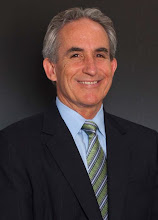March 2006
A Relationship Story
An Answer to the "Mystery of Connecting"
I’ve always wondered what the key was to why I connect personally with some people and not with others (besides the obvious - that many people are kind enough to humor me!). Is it "opposites attract", or is it common interests, or something weird that I don’t understand like biorhythms? And then I learned a lot about natural themes of strength in different people, and this helped me understand how combining diverse talents makes an organization strong, but it didn’t help explain the difference in connecting on a person-to-person basis.
"The Likeability Factor" by Tim Sanders (a big author/thinker for me – he also wrote another favorite about networking and relationships called "Love Is The Killer App") offers insights that help with this big unanswered question.
Have you ever noticed how a person can be extremely pleasant, but they just seem invisible? They might struggle with RELEVANCE - nobody seems to pay attention to them.
Ever know somebody who is pleasant and friendly but who always seems to be on a different page than everyone else? Maybe their problem is they lack EMPATHY – they can’t read what’s going on inside others.
Or how about the person who is bright, cheerful, empathetic, and highly relevant, but who feels they need to please others too much? They might have trouble with REALNESS – they may not be comfortable enough with themselves to be transparent and authentic.
And then, of course, you have your basic jerk that just seems incapable of FRIENDLINESS – they may understand what to say, may behave authentically, and may really read others well, but they just don’t seem to care how other people feel.
Each of these scenarios highlights one of the four factors that Sanders believes make up our Likeability – Friendliness, Relevance, Empathy, and Realness. Now I get it! I can see more clearly the differences between people, and can understand the success or struggle in my own individual connections and relationships. Sadly (but maybe not really), I also understand my own flaws in achieving Likeability and being consistent. My grumpiness and intensity is not all that friendly, my love for hearing myself talk is often not very relevant, and I continue to try to overcome a life as "authenticity challenged"…ouch, but the insight is so valuable.
Take a look around you – and take a look at yourself – and see if you may be able to understand a bit better why some connections seem to work better than others. Even it it’s a bit painful, or if it borders on being too analytical for your liking, at least it offers a re-calibration for us on a more damaging trait – Cluelessness! Might be worth spending a brain cell or two on.
My best to each of you, and I welcome your thoughts and comments.
Book Recommendation: The Likeability Factor by Tim Sanders
Sincerely,
Jeff Black
Principal Consultant
McDermott & Bull Executive
black@mbsearch.net
